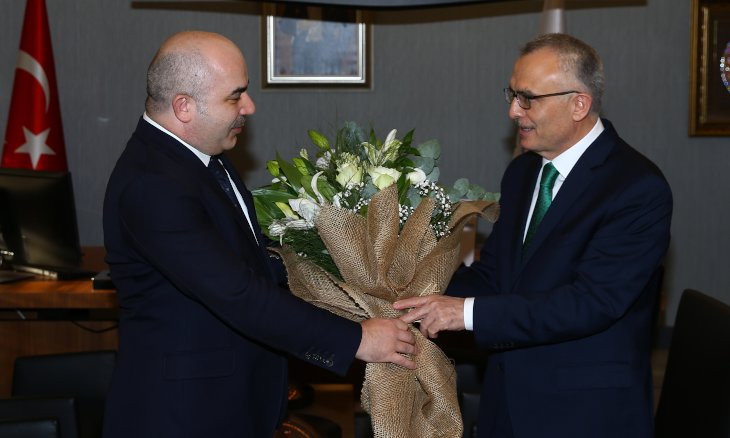Turkish Lira gains value following Albayrak's resignation announcement
Turkey's lira staged its biggest rally in more than two years on Nov. 9, soaring nearly 6 percent after the surprise departure over the weekend of both the finance minister and the Central Bank governor, whose replacement said he would zero in on inflation.
Duvar English
Turkey's lira staged its biggest rally in more than two years on Nov. 9, soaring nearly 6 percent after the surprise departure over the weekend of both the finance minister and the Central Bank governor, whose replacement said he would zero in on inflation.
The lira strengthened as far as 8.08 against the dollar from a close of 8.5445 on Nov. 6. It stood at 8.1250 at 1022 GMT. It was the biggest one-day rally since the currency rebounded from a record low in August 2018, a month after Berat Albayrak became finance minister.
The lira also rebounded 5 percent to 9.6 against the euro, having peaked near 10.2 last week.
 Finance Minister Berat Albayrak announces resignation on Instagram
Finance Minister Berat Albayrak announces resignation on InstagramSpeculation an interest-rate increase may be looming came after President Recep Tayyip Erdoğan fired Central Bank Governor Murat Uysal over the weekend. That was followed on Nov. 8 by the announcement from Albayrak, who is also Erdoğan's son-in-law, that he would resign.
The Turkish currency has lost about 30 percent against the dollar in 2020, a decline that has accelerated since the Central Bank held back from raising the cost of borrowing at its October meeting.
Uysal’s sudden replacement by former Finance Minister Naci Ağbal is unlikely to stem the lira’s losses unless monetary policy takes a more hawkish turn. Inflation is in double digits, the country is running a current-account deficit and foreign reserves are being eroded.
 Erdoğan sacked Central Bank governor 'over rapid rise in exchange rates'
Erdoğan sacked Central Bank governor 'over rapid rise in exchange rates'Turkey is scheduled to hold its next rates meeting on Nov. 19. In the run up to that decision, “the current situation and expectations will be reviewed, developments will be closely monitored,” Ağbal said in his first statement on Nov. 9. “Necessary policy decisions will be made with the available data and final evaluations.”
Albayrak’s term was characterized by mostly-futile efforts to control the value of the currency without resorting to raising interest rates, in line with Erdoğan's widely discredited view that higher interest rates lead to higher inflation. Most economists think the opposite is true.
Joe Biden’s victory in the U.S. presidential election is unlikely to do the lira any favors either. Traders have been concerned that U.S.-Turkish relations will cool under the new administration. The Turkish government faces possible U.S. sanctions over the purchase of a Russian missile system.
